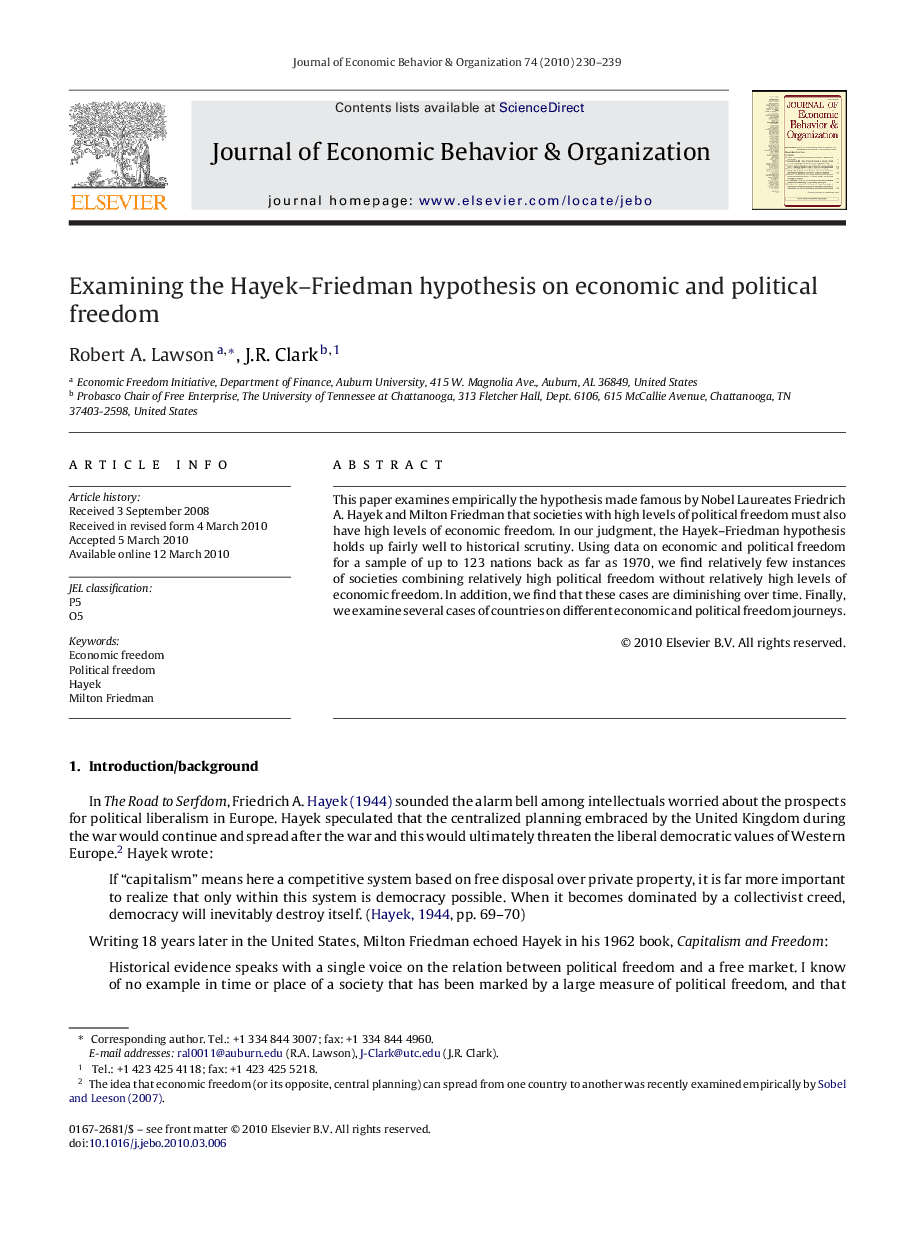| Article ID | Journal | Published Year | Pages | File Type |
|---|---|---|---|---|
| 884092 | Journal of Economic Behavior & Organization | 2010 | 10 Pages |
Abstract
This paper examines empirically the hypothesis made famous by Nobel Laureates Friedrich A. Hayek and Milton Friedman that societies with high levels of political freedom must also have high levels of economic freedom. In our judgment, the Hayek–Friedman hypothesis holds up fairly well to historical scrutiny. Using data on economic and political freedom for a sample of up to 123 nations back as far as 1970, we find relatively few instances of societies combining relatively high political freedom without relatively high levels of economic freedom. In addition, we find that these cases are diminishing over time. Finally, we examine several cases of countries on different economic and political freedom journeys.
Related Topics
Social Sciences and Humanities
Economics, Econometrics and Finance
Economics and Econometrics
Authors
Robert A. Lawson, J.R. Clark,
